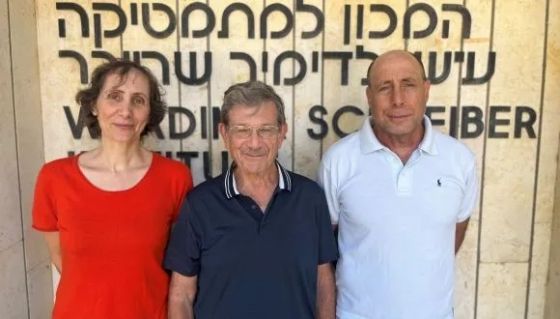
TAU Researchers Win the Prestigious Rousseeuw Prize for Statistics
Congratulations to Prof. Yoav Benjamini, Prof. Daniel Yekutieli, and Prof. Ruth Heller for winning the prestigious Rousseeuw Prize for Statistics
The King Baudouin Foundation has awarded the prestigious Rousseeuw Prize for Statistics to Prof. Yoav Benjamini, Prof. Daniel Yekutieli, and Prof. Ruth Heller from the Department of Statistics and Operations Research at Tel Aviv University for their pioneering work on False Discovery Rate (FDR). The biennial $1m prize, inaugurated in 2022 and awarded in even years, honors outstanding innovations in statistical research that profoundly impact society.
The Prize was awarded to this year’s laureates for work that enables scanning large numbers of experimental results and selecting real discoveries while limiting the number of false discoveries. In their groundbreaking paper, Prof. Yoav Benjamini and the late Prof. Yosef Hochberg first presented the FDR criterion, expressed it mathematically, and proposed a method for identifying a maximum number of discoveries while maintaining a desirable FDR. At the time, this paper conflicted with widely accepted criteria, and consequently, its publication was delayed for years. Today, however, it is one of the most highly cited papers in the scientific world.
Prof. Benjamini was joined by his students Profs. Yekutieli and Heller who continued in his footsteps both together and separately, adding further innovations to the theory of FDR. Their work has enabled the extension of the Benjamini-Hochberg method’s uses beyond the original paper, applying it to challenges in genomics and neuroscience and proposing methods for assessing the reproducibility of scientific findings.
Prof. Yoav Benjamini: “The concept of FDR was born from a need in medical research, specifically studies examining large numbers of success parameters to evaluate new treatments. However, in statistics, a new approach established in one field of research can also impact other areas. Today FDR methods are applied in a wide variety of fields, such as genomics – where researchers investigate tens of thousands of genetic indicators for certain diseases; neuroscience – where studies look for parts of the brain activated by specific tasks, such as face recognition; and also agriculture, economics, behavioral sciences, astronomy and more. All these fields share a need to scan enormous quantities of possible results and ultimately find real discoveries in mountains of data”.
“I am pleased about the expressed appreciation for our research. Winning the Rousseeuw Prize is the outcome of a long process, planted and cultivated in Israel for many years, in a fertile academic substrate, that grew into the global world of science. I hope that even in these difficult times for Israel and the region, our societies will allow academia to sustain an open and healthy environment, enabling continued scientific growth that benefits mankind with no borders” – Prof. Benjamini
